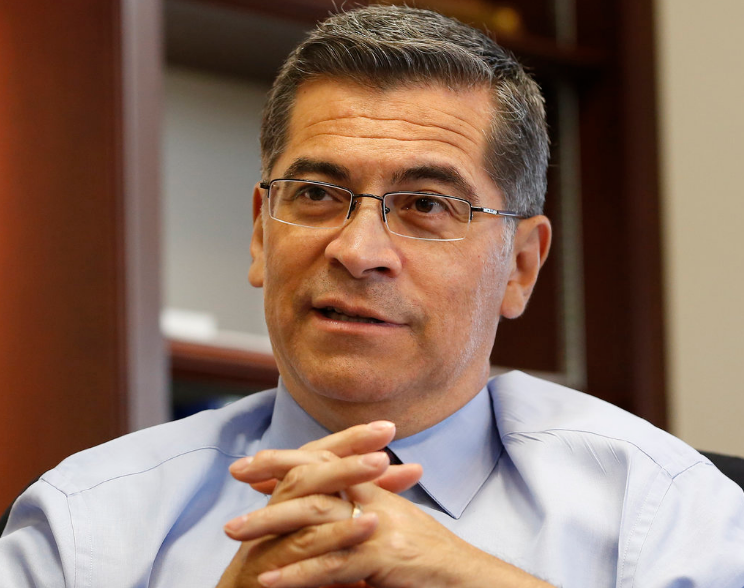
- Details
- By Levi Rickert
Native Americans and Alaska Natives among Americans Hit hardest by the Opioid Epidemic
WASHINGTON – With Indian Country being hit hard by the opioid crisis, Native American organizations are counting on California Attorney General Xavier Becerra to confront the issue head-on. Becerra, President Biden’s nominee to become the secretary of the U.S. Dept, of Health and Human Services (HHS), has proven track record for dealing with the opioid crisis.
 HHS nominee Calif. Atty. Gen. Xavier BecerraAs attorney general of California, Becerra played a lead role in holding corporate opioid manufacturers and marketers accountable, forming a successful coalition of attorneys general from 47 states, the District of Columbia and five U.S. territories.
HHS nominee Calif. Atty. Gen. Xavier BecerraAs attorney general of California, Becerra played a lead role in holding corporate opioid manufacturers and marketers accountable, forming a successful coalition of attorneys general from 47 states, the District of Columbia and five U.S. territories.
“The abuse of opioids, not just by those who consumed these drugs, but by those who produced, marketed, distributed and dispensed them, has left much of America in mourning. We can’t bring back lost lives, but we can hold ringleaders accountable,” Attorney General Becerra said after the coalition punished and exposed McKinsey & Company as a ringleader in the addiction-for-profit scheme.
According to the Centers for Disease Control and Prevention (CDC), Indian Country has suffered the second highest rates of death due to opioid overdoses among other racial groups in the United States. American Indians and Alaska Natives have 15.7 deaths/100,000 population (link to the CDC Data Overview).
The leaders of the Rocky Mountain Tribal Leaders Council, the Global Indigenous Council, and the Great Plains Tribal Chairmen’s Association called on senators to recognize the devastation that the scourge of opioids has wreaked on Indigenous Americans.
“Within the Indigenous American community, you find an opioid crisis on par with the state of West Virginia, considered by many to be the epicenter of the opioid devastation,” Tom Rodgers, president of the Global Indigenous Council said. “As we know, politicians talk a good game when it comes to the opioid crisis and taking on the jackals who peddle addiction-for-profit, but Xavier Becerra brings a track record of action on the issue. He also understands how maliciously underfunded Indian Health Service is today. Those are the kinds of issues the Indigenous community needs addressed by the next secretary of HHS.”
Turning to another shared issue of concern in the Indigenous communities, the groups cited the importance of HHS being run by someone that will respond to the mental health crisis exacerbated by the coronavirus pandemic. “The COVID-19 pandemic has laid bare the mental health crisis in Indian Country,” Gay Kingman, executive director of the Great Plains Tribal Chairman Association said. “This virus is literally killing us physically and spiritually. We need a warrior to help heal us like Xavier Becerra.”
The Indigenous groups, which previously led a successful effort backing the nomination of Deb Haaland as secretary of the Interior, have written to Senate leaders to urge them to confirm Attorney General Becerra as secretary of HHS.
More Stories Like This
Native News Weekly (August 25, 2024): D.C. BriefsUS Presidents in Their Own Words Concerning American Indians
Native News Weekly (December 14, 2025): D.C. Briefs
Wounded Knee Massacre Site Protection Bill Passes Congress
Two Murdered on Colville Indian Reservation
Help us defend tribal sovereignty.
At Native News Online, our mission is rooted in telling the stories that strengthen sovereignty and uplift Indigenous voices — not just at year’s end, but every single day.
Because of your generosity last year, we were able to keep our reporters on the ground in tribal communities, at national gatherings and in the halls of Congress — covering the issues that matter most to Indian Country: sovereignty, culture, education, health and economic opportunity.
That support sustained us through a tough year in 2025. Now, as we look to the year ahead, we need your help right now to ensure warrior journalism remains strong — reporting that defends tribal sovereignty, amplifies Native truth, and holds power accountable.
 The stakes couldn't be higher. Your support keeps Native voices heard, Native stories told and Native sovereignty defended.
The stakes couldn't be higher. Your support keeps Native voices heard, Native stories told and Native sovereignty defended.
Stand with Warrior Journalism today.
Levi Rickert (Potawatomi), Editor & Publisher

